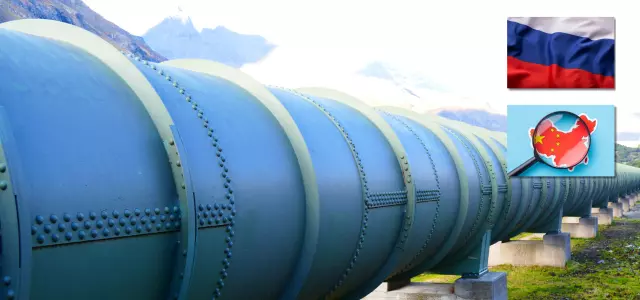
This article originally ran on Forbes.com on June 25, 2024. All rights reserved.
Daniel B. Markind is a Forbes.com energy column contributor. The views expressed in this article are not to be associated with the views of Flaster Greenberg PC.
When Russia invaded Ukraine in February 2022, it lost access to many world markets, including much of Europe. Countries like Germany, which for years had relied on Russian gas and oil, now turned sharply away and sought to rid themselves of any vestiges of Russian dependence. (Source)
Into the breach stepped China. Always thirsty for new supplies of gas and oil, China quickly notified Russia that it was interested in receiving Russian gas and in developing a pipeline from Siberia for that gas. (Source). Recently, however, that lifeline looks more like a noose, at least for Russia. Beijing is taking a very aggressive stance on what is to be known as the “Power of Siberia 2” pipeline, which was planned to transport a maximum annual capacity of 50,000,000 m³ of natural gas from Russia to China. (Source)
China now is demanding that it pay only Russia's heavily subsidized domestic price for the natural gas, and China will not commit to buying a substantial quantity of such gas every year. (Source) Meanwhile, Russia's state-owned oil company, Gazprom, is hemorrhaging cash. Last year, it reported a loss of $6.9 billion, its first annual loss in 20 years. (Source) Perhaps in a sign of the difficulties regarding the negotiations, Gazprom's CEO, Alexei Miller, who had been a fixture in previous Sino-Russian talks, did not accompany Russian President Vladimir Putin on a trip to Beijing in May. (Source)
The fact that China is taking such an aggressive stance in the negotiations with Russia highlights the changing power dynamics between the two countries following Russia's invasion of Ukraine in 2022. Numerous western European countries have reduced or terminated their gas and oil dependency on Russia, the Nordstream II Pipeline has been destroyed, and much of the economic relationship between Russia and the west has dissolved altogether. Without that western economic outlet, China assumed greater significance to Russia’s economic interests.
China, however, rarely allows an opportunity to extract a price to pass by. It is playing economic hardball with Russia, and Russia has little ammunition with which to fight back. Regardless of how this negotiation turns out, the Sino-Russian relationship is changing. Vladimir Putin now knows that, notwithstanding any prior claim that with China he has a "friendship without limits". (Source) Simply put, China will not inconvenience itself to help its northern neighbor. Simultaneously, Russia's economic isolation is only deepening, and Vladimir Putin may be running out of time to reverse it.

